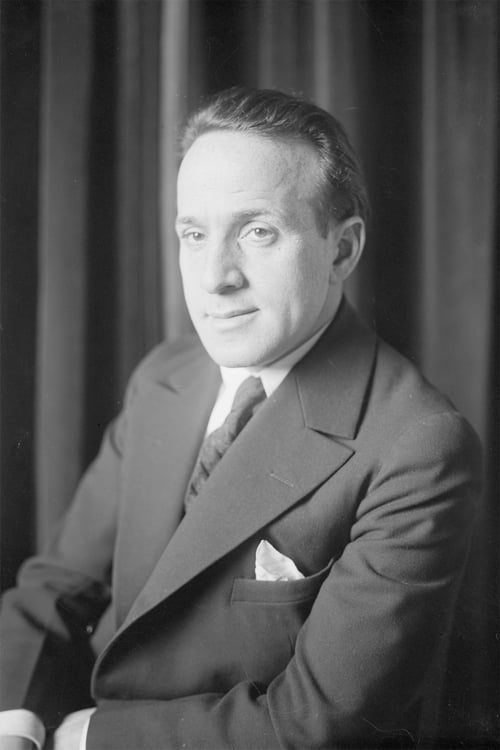This Is Tomorrow (1943)
장르 : 다큐멘터리
상영시간 : 11분
시놉시스
This John Nesbitt's Passing Parade short takes a look at the evolution of the American city, from the initially small farming village, to the eventually hectic, congested metropolis, to the future planned suburban community.
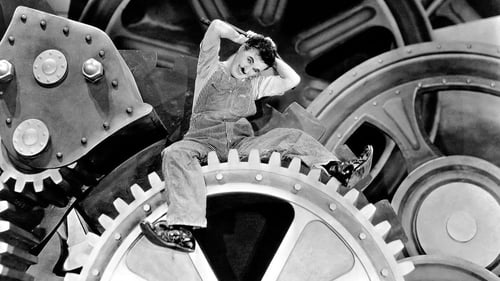
산업의 기계화와 대공황이 맞물려 힘든 시절, 공장의 컨베이어 벨트 위에서 하루 종일 나사못 조이는 일을 하는 찰리. 찰리는 반복되는 작업에 착란 현상을 일으키고, 눈에 보이는 모든 것을 조여버리는 강박 관념에 빠지고 만다. 그는 급기야 정신 병원에 가게 되고, 거리를 방황하다 시위 군중에 휩쓸려 감옥살이까지 하게 된다. 몇 년 후 감옥에서 풀려난 찰리는 부모를 잃고 고아가 된 한소녀를 만난다. 그녀의 도움으로 카페에서 일하게 되고 서로를 의지하며 새로운 희망을 가진다. 둘은 행복하고 단란한 가정을 꿈꾸며 일자리를 찾아 헤매지만 매번 다시 거리로 내몰리고 마는데...
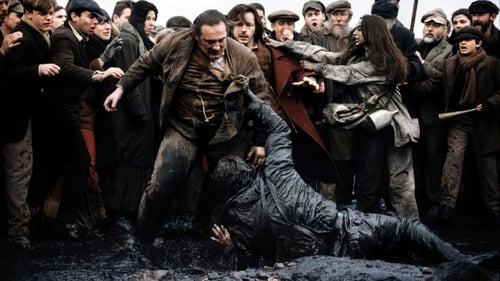
에밀 졸라의 소설을 영화화했다. 프랑스 제2제정 시대. 젊은 실업자 에티엔느 랑티에(레노드 분)는 광부가 되면서 지옥같은 노동자의 삶에 발을 들여놓는다. 프랑스 북부에서 그는 가난과 알콜중독, 난잡한 성생활, 샤발같이 음탕하거나 투생 마유같이 너그러운 사람들 등 버림받아 고통에 빠진 인간성을 발견한다. 그는 사회주의 운동에 나서지만 광산 책임자로부터 찍히게 된다. 봉급이 깍이자, 대대적인 파업이 일어나고 광부들에게 굶주림과 죽음이 다가온다. 이런 속에서도 에티엔느와 카트린느(주디스 헨리 분)의 사랑은 아름답게 빛난다. 파업은 군대에 의해 진압되지만 에티엔느는 그 모든 피가 헛되지 않았다는 희망을 가슴에 담고 다시 떠난다.
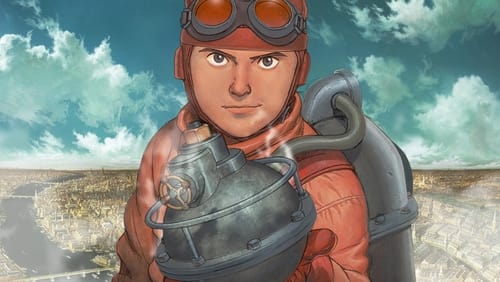
19세기 중반, 세계 최초의 만국 박람회를 목전으로 둔 영국, 사람들은 새로운 발명의 기대에 가슴을 부풀이고 있었다. 연구를 위해 도미중인 발명가 아버지 에디와 조부 로이드의 귀가를 기다리는 소년 레이 또한 발명이라면 자다가도 벌떡 일어나는 사내 아이다. 그런 어느 날 레이의 앞에 수수께끼의 금속 볼이 전달된다. 조부 로이드로부터 배달 된 것이었다. 때마침 아버지와 조부를 미국에 부른 오하라 재단의 사람이라 칭하는 남자들이 나타나 그 볼을 빼앗으려고 한다. 레이는 자신이 만든 외바퀴 증기차를 차고 도망치려 하지만, 증기톱니바퀴 열차로 추격해 온 남자들에게 잡혀 만국 박람회의 파빌리온에 갇혀 버린다. 그곳에서 레이는 미국에 있어야 할 아버지 에디와 재회하고 금속볼의 비밀을 알게 된다. 초고압의 증기를 고밀도에 봉인하여 담은 구체. 그것은 인류의 역사를 바꿀 수 있을 정도의 위력을 지닌 경이의 발명품 스팀볼 이었던 것이다! 재단은 그 힘을 무기화하여 온 세상에 팔려 하고 있었던 것. 레이와 재단의 볼을 둘러싼 분쟁은 이윽고 영군군까지 출동하게 하면서 큰 소란을 불러 일으킨다. 그 소동 중에 스팀볼에 얽힌 새로운 비밀이 밝혀지는데. 과연 이 신비에 싸인 스팀볼은 사람들에게 행복을 가져오는 꿈의 힘인가, 혹은.. 악마의 발명 인가?
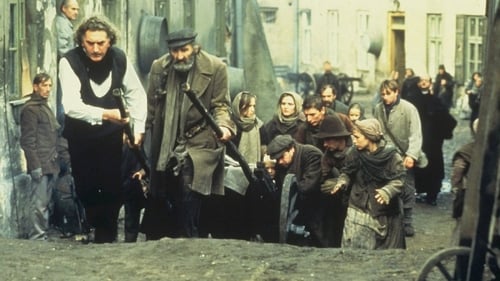
In the 1890s, Father Adolf Daens goes to Aalst, a textile town where child labor is rife, pay and working conditions are horrible, the poor have no vote, and the Catholic church backs the petite bourgeoisie in oppressing workers. He writes a few columns for the Catholic paper, and soon workers are listening and the powerful are in an uproar. He's expelled from the Catholic party, so he starts the Christian Democrats and is elected to Parliament. After Rome disciplines him, he must choose between two callings, as priest and as champion of workers. In subplots, a courageous young woman falls in love with a socialist and survives a shop foreman's rape; children die; prelates play billiards.

A lyrical documentary on the lives of Coal miners in the Donbass who are struggling to meet their production quotas under the Five Year Plan.
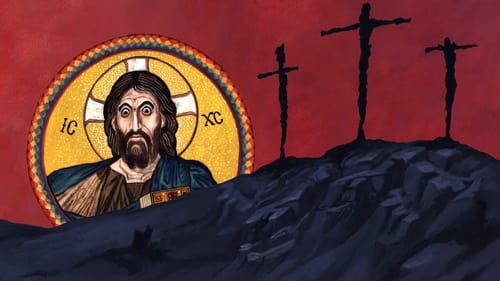
Jankovics's adaptation of the eponymous play is divided into multiple parts, and depicts the creation and fall of Man throughout history.

An account of the last two centuries of the Anthropocene, the Age of Man. How human beings have progressed so much in such a short time through war and the selfish interests of a few, belligerent politicians and captains of industry, damaging the welfare of the majority of mankind, impoverishing the weakest, greedily devouring the limited resources of the Earth.

This MGM Passing Parade series short presents how separate events led to the creation of three provisions - freedom of speech, freedom of the press, and prohibition of the infliction of cruel and unusual punishments - in the U.S. Constitution's Bill of Rights.

Narrator John Nesbitt laments the disappearance of the rural one-room schoolhouse in America. He reminisces about his own days as a student in such a school and how his teacher, Miss Turlock, influenced so many students. Many of them reunite at the school on Miss Turlock's last day, when the school was closed in 1940.

This John Nesbitt's Passing Parade short takes a look at the typical American barbershop throughout the years.

This MGM Passing Parade series short tells the story of Clara Barton, the founder of the Red Cross.

In this John Nesbitt's Passing Parade short, a man traces his history by the succession of cars his father owned. [This short appears in its entirety during MGM's short feature "The Great Morgan".]

In this John Nesbitt's Passing Parade short, a look is taken at the problems of film preservation efforts in the 1930s and early 1940s.

This final John Nesbitt's Passing Parade series short looks at a community, Mooseheart, in Illinois that orphaned children call home.

Professor Jeremy Black examines one of the most extraordinary periods in British history: the Industrial Revolution. He explains the unique economic, social and political conditions that by the 19th century, led to Britain becoming the richest, most powerful nation on Earth. It was a time that transformed the way people think, work and play forever.

Narrator John Nesbitt reminisces about his hometown and childhood in this Passing Parade series short.

This John Nesbitt's Passing Parade short tells the story of Alfred Nobel, who invented dynamite, and later established the Nobel Prize.

This MGM Passing Parade series short tells the story of Julian Poydras, whose encounter with a girl at Mardi Gras had a profound effect on his later life.

In this John Nesbitt's Passing Parade series short, narrator John Nesbitt tells the story of Scandinavian immigrant Annie Swenson, who worked as cook and housekeeper in his family's home while he was growing up.

